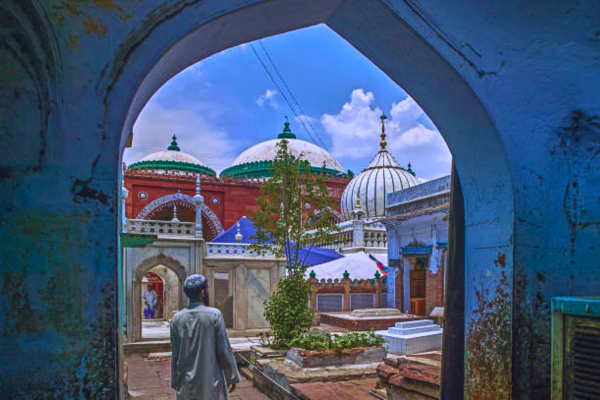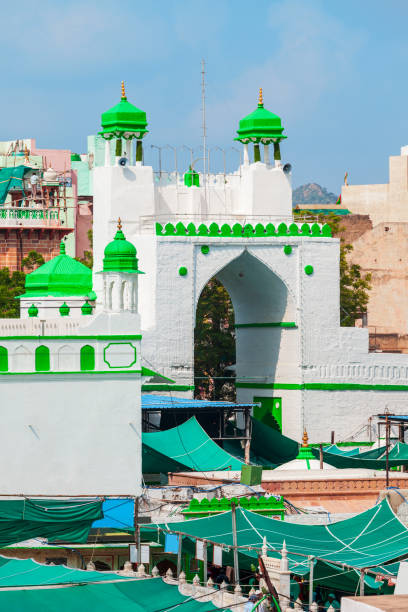
Muharram is thefirst month of the Islamic lunar calendar. It holds significant religious and cultural importance, particularly for Muslims. One of the most notable events observed during Muharram 2024 Festival celebrate Muharram is Ashura, which marks the martyrdom of Imam Hussein, the grandson of Prophet Muhammad, and his companions at the Battle of Karbala in 680 AD.
Ashura is a solemn day of mourning and reflection for many Muslims, especially within the Shia community. They commemorate the sacrifices made by Imam Hussein and his followers, reflecting on themes of sacrifice, justice, and standing against oppression car rental .
For Sunni Muslims, Ashura also holds importance, though it may be observed differently. Some Sunni communities fast on this day to commemorate the liberation of the Israelites from Pharaoh in Egypt, following the tradition of Prophet Muhammad.
Throughout Muharram 2024 Festival celebrate, various rituals and traditions are observed, including fasting, attending special prayers and gatherings, and participating in processions. These observances vary based on cultural and regional practices within the diverse Muslim community

Certainly! Here's some additional information about Muharram 2024 Festival celebrate activities.
Historical Recitations:- During Muharram, Muslims often recite historical accounts and narratives related to the events of Karbala. These recitations may include passages from books such as “Maqtal al-Husayn” (the martyrdom story of Imam Hussein) and other texts that detail the events leading up to and following the Battle of Karbala.
Taziya Processions:- In some communities, particularly in South Asia, Taziya processions are held during Muharram. Muharram 2024 Festival celebrate Taziyas are symbolic replicas or representations of the tombs of Imam Hussein and other martyrs of Karbala. These processions involve carrying the Taziyas through the streets while participants engage in mourning rituals and recitations.
Blood Donation Drives:- In some regions, especially where the practice of self-flagellation or bloodletting (known as Matam) is discouraged or prohibited, Muharram is marked by blood donation drives. This serves as a symbolic gesture of sacrifice and solidarity with the spirit of Imam Hussein’s martyrdom.
Artistic Expressions:- Muharram inspires various forms of artistic expression, including poetry, literature, and visual arts. Poets often compose elegies (marsiyas) and lamentations (nohas) in memory of Imam Hussein and his companions, while artists create paintings, calligraphy, and other artworks depicting scenes from the Battle of Karbala.
Community Service:- Many Muslims engage in community service projects during Muharram, such as feeding the poor, organizing health camps, or distributing free meals (sabeel) to passersby. Muharram 2024 Festival celebrate These acts of service are considered a form of charity and a way to honor the memory of Imam Hussein’s compassion and generosity.
These activities, along with the ones previously mentioned, contribute to the rich tapestry of Muharram observances, highlighting the diverse ways in which Muslims commemorate the martyrdom of Imam Hussein and reflect on its enduring significance in their lives.
Reflecting on Muharram is a deeply personal and spiritual practice for many Muslims. Here are some themes and aspects of Muharram that people often reflect upon:
Sacrifice and Selflessness:- Muharram prompts reflection on the ultimate sacrifice made by Imam Hussein and his companions at the Battle of Karbala. Their willingness to stand up against oppression and injustice, even at the cost of their lives, serves as a powerful example of selflessness and devotion to principle.
Courage and Resilience:- Imam Hussein’s unwavering courage in the face of overwhelming odds inspires reflection on the importance of resilience and steadfastness in the pursuit of truth and justice. Muharram 2024 Festival celebrate Despite knowing the risks, he remained firm in his beliefs and refused to compromise his principles.
Standing Against Injustice:- Muharram encourages reflection on the broader implications of Imam Hussein’s stand against tyranny and oppression. It prompts individuals to consider their own role in standing up against injustice and supporting those who are marginalized or oppressed in society.
Unity and Solidarity:- Muharram often fosters a sense of unity and solidarity among Muslims, regardless of sectarian differences. It reminds individuals of the importance of coming together as a community to commemorate shared values and honor the legacy of Imam Hussein.
Repentance and Renewal:- Muharram also serves as a time for introspection and repentance, as Muslims reflect on their own shortcomings and seek forgiveness for past mistakes. It provides an opportunity for spiritual renewal and a recommitment to living according to the teachings of Islam.
Gratitude and Thankfulness:- Reflecting on the events of Muharram can instill a sense of gratitude for the blessings and freedoms enjoyed in daily life. Muharram 2024 Festival celebrate It encourages individuals to appreciate the sacrifices made by Imam Hussein and his companions, as well as the many blessings bestowed upon them by the divine.
Overall, Muharram is a time for deep introspection, spiritual growth, and a recommitment to the values of justice, compassion, and righteousness exemplified by Imam Hussein. Through reflection, individuals seek to draw inspiration from his legacy and apply its lessons to their own lives.
Muharram holds significant historical importance in Islam, particularly due to the events of the Battle of Karbala, which occurred in the month of Muharram in the Islamic year 61 AH (After Hijra).
The Battle of Karbala took place on the 10th day of Muharram (known as Ashura) in 680 AD. It was a pivotal event that ultimately led to the split between the Sunni and Shia branches of Islam.
Here’s a brief overview of the historical context and events leading up to the Battle of Karbala:
Succession Crisis:- Following the death of the third caliph, Uthman ibn Affan, in 656 AD, a succession crisis emerged in the Muslim community. This led to the establishment of the Umayyad dynasty, with Muawiyah I becoming the fifth caliph.
Rebellion of Imam Hussein:- Muawiyah’s son, Yazid I, succeeded him as caliph in 680 AD. However, Yazid’s legitimacy was contested by many, including Imam Hussein, the grandson of Prophet Muhammad and the son of Ali ibn Abi Talib (the fourth caliph) and Fatimah (the daughter of Prophet Muhammad). Imam Hussein refused to pledge allegiance to Yazid, believing him to be unfit to lead the Muslim community.
Journey to Karbala:- Imam Hussein, along with his family members and a small group of followers, traveled from Mecca to Kufa (in present-day Iraq) in response to calls for support from the people of Kufa who opposed Yazid’s rule. However, en route to Kufa, Imam Hussein’s caravan was intercepted by Yazid’s forces near the desert of Karbala.
Battle of Karbala:- Despite being vastly outnumbered, Imam Hussein and his companions refused to pledge allegiance to Yazid and stood their ground against Yazid’s army. The battle lasted for ten days, culminating in a tragic and brutal massacre on the day of Ashura. Imam Hussein, along with many of his family members and supporters, was killed in the battle.
The events of Karbala had profound implications for the Muslim community, particularly for Shia Muslims, who view Imam Hussein as a martyr and a symbol of resistance against oppression and tyranny. Muharram serves as a time of mourning and remembrance for Imam Hussein’s sacrifice and the values he stood for, emphasizing themes of justice, courage, and standing against injustice.
Muharram is not typically celebrated in the traditional sense. Instead, it is observed as a month of mourning and remembrance, particularly by Shia Muslims, to commemorate the martyrdom of Imam Hussein, the grandson of Prophet Muhammad, and his companions at the Battle of Karbala in 680 AD.
The events of Karbala are considered tragic by many Muslims, especially within the Shia community. Imam Hussein, along with his family members and supporters, stood against the oppressive regime of Yazid, the Umayyad caliph at the time, in defense of justice and righteousness. Despite being vastly outnumbered, Imam Hussein and his followers refused to submit to tyranny and chose to uphold their principles, even at the cost of their lives.
Muharram serves as a time for reflection, mourning, and spiritual introspection for Muslims. They commemorate the sacrifices made by Imam Hussein and his companions, reflecting on themes of sacrifice, courage, and standing against oppression. Through various rituals and observances such as attending Majalis (gatherings where sermons are delivered), participating in mourning processions, and offering prayers, Muslims honor the memory of Imam Hussein and seek to draw inspiration from his example.
While Muharram is not a joyous occasion, it holds profound religious and cultural significance for many Muslims, emphasizing the values of justice, compassion, and righteousness that Imam Hussein embodied through his actions and sacrifice.
Muharram is not celebrated in the conventional sense, but rather observed as a month of mourning and remembrance, particularly by Shia Muslims, to commemorate the martyrdom of Imam Hussein, the grandson of Prophet Muhammad, and his companions at the Battle of Karbala in 680 AD. Here are some common ways Muharram is observed:
Attending Majalis: Majalis are gatherings where scholars or community leaders give lectures or sermons on the significance of Muharram and the events of Karbala. These gatherings often include recitations of poetry and passages from religious texts.
Participating in Mourning Processions: In some communities, particularly among Shia Muslims, processions are held during Muharram. These processions involve participants marching through the streets, often beating their chests or engaging in other forms of symbolic mourning to commemorate the martyrdom of Imam Hussein.
Reciting Lamentations and Poetry: Muslims may recite elegies, poetry, and lamentations in memory of Imam Hussein and his companions. These recitations often evoke emotions of grief and sorrow.
Fasting: Many Muslims observe fasting during the month of Muharram, particularly on the 9th and 10th days (Ashura). Some may also fast on the day before or after Ashura as recommended by the Prophet Muhammad.
Engaging in Acts of Charity: Muharram is also a time for acts of charity and compassion. Many Muslims take the opportunity to donate to the needy, feed the hungry, or support charitable causes in honor of Imam Hussein’s spirit of sacrifice and generosity.
Offering Special Prayers: Muslims may offer special prayers during Muharram, seeking blessings, forgiveness, and guidance. These prayers may be performed individually or in congregation, with a focus on reflection and spiritual growth.
Throughout these observances, the overarching theme is one of mourning and reflection on the sacrifices made by Imam Hussein and his companions, as well as the values of justice, courage, and standing against oppression that they exemplified.
Muharram, the first month of the Islamic lunar calendar, is celebrated by Muslims worldwide. Its timing varies each year in the Gregorian calendar because the Islamic calendar is based on the lunar cycle, which is about 11 days shorter than the solar calendar.
To determine the exact dates of Muharram, one needs to refer to an Islamic lunar calendar or consult with local religious authorities who monitor the moon sighting. Generally, Muharram begins with the sighting of the new moon, marking the start of the Islamic New Year.
As an example, in recent years, Muharram has typically fallen between August and September in the Gregorian calendar. However, the specific dates vary each year due to the lunar nature of the Islamic calendar.
Comments